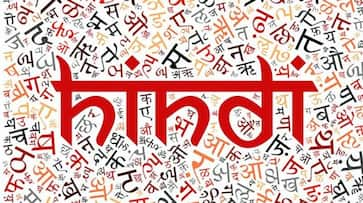In the original Draft National Education Policy 2019, a three-language formula recommended the inclusion of English and Hindi besides mother tongue in the non-Hindi state, while the Hindi-speaking states were to include English and Indian language from other parts of India
New Delhi: After a huge outcry and allegations of Hindi imposition by many states, the Centre on Monday made changes to the new Draft National Education Policy, making the language optional.
"In keeping with the principle of flexibility, students who wish to change one or more of the three languages they are studying may do so in Grade 6 or Grade 7, so long as they are able to still demonstrate proficiency in three languages (one language at the literature level) in their modular Board Examinations sometime during secondary school," read the tweaked version of the draft policy.
In the original Draft National Education Policy 2019, a three-language formula recommended the inclusion of English and Hindi besides mother tongue in the non-Hindi state, while the Hindi-speaking states were to include English and Indian language from other parts of India.
Hue and cry was raised across the country after the release of the draft and the southern states led by Tamil Nadu vehemently expressed outrage at the Hindi imposition. The Centre was forced to say that it was only a draft and Hindi would not be imposed on all the states.
Also read: National Education Policy 2019 draft: Prakash Javadekar clarifies, says it is only a draft
On Monday, the DMK in Tamil Nadu had passed a resolution against the Centre's policy and had said that the NDA should not test its patience. Karnataka's former chief minister Siddaramiah had also said that the imposition of Hindi was a "brutal assault".
Although the revised draft does not specify which three languages must be taught in schools, it continues to advocate the three language formula in order to " promote multilingual communicative abilities for a multilingual country".
Last Updated Jun 3, 2019, 3:21 PM IST









![Salman Khan sets stage on fire for Anant Ambani, Radhika Merchant pre-wedding festivities [WATCH] ATG](https://static-gi.asianetnews.com/images/01hr1hh8y86gvb4kbqgnyhc0w0/whatsapp-image-2024-03-03-at-12-24-37-pm_100x60xt.jpg)
![Pregnant Deepika Padukone dances with Ranveer Singh at Anant Ambani, Radhika Merchant pre-wedding bash [WATCH] ATG](https://static-gi.asianetnews.com/images/01hr1ffyd3nzqzgm6ba0k87vr8/whatsapp-image-2024-03-03-at-11-45-35-am_100x60xt.jpg)


